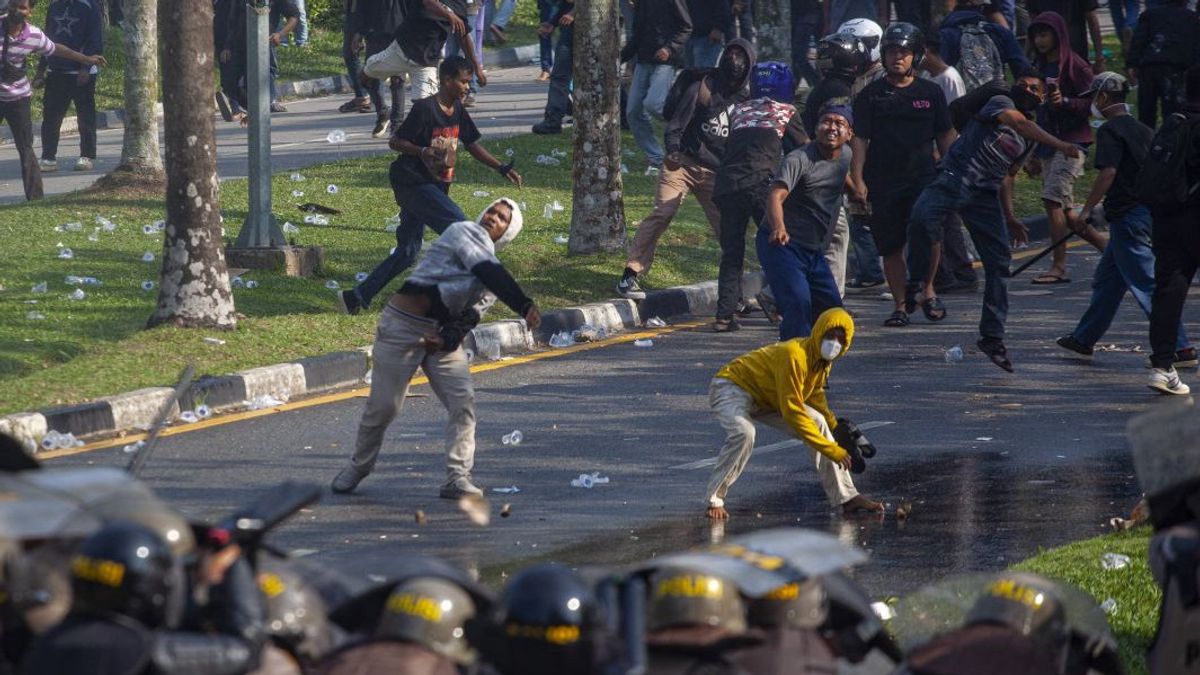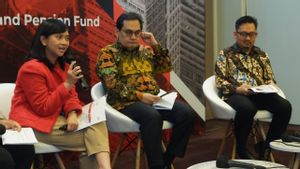JAKARTA - Pelita Harapan University Criminal Law expert Agus Surono assessed that there was no element of gross human rights violation in the agrarian conflict on Pulau Rempang, Batam, Riau Islands.
"The incident that occurred on the island of Rempang cannot be qualified as a gross violation of human rights, as referred to in Law No. 26 of 2000," Agus said in his statement, Wednesday, September 20.
He also reasoned that in a juridical manner based on Article 1 number 1 of Law 26 of 2000 it was stated that "Human Rights are a set of rights inherent in the essence and existence of humans as creatures of God Almighty and are His gifts that must be respected, upheld and protected by the state, law, government, and everyone for the sake of honor and protection of human dignity".
Meanwhile, he said, what is meant by gross human rights violations in Indonesia is that there is a first genocide crime.
"That is, every act committed with the intention of destroying or destroying entire or part of the nation's groups, races, ethnic groups, religious groups," he continued. The crime of genocide can be committed by killing group members, resulting in severe physical or mental suffering against group members." Then creating conditions for group life that would result in physical destruction either throughout or in part, imposing actions aimed at preventing birth in groups or forcibly moving children from certain groups to groups," he said. Second, he continued, namely crimes against humanity, namely one of the acts committed as part of widespread attacks or systematics that he knew was aimed directly at civilians. This can be done by means of killing, destroying, slavery, expulsion or forced relocation of residents, confiscation of freedom or arbitrary confiscation of physical freedom (assas-assas) the basic provisions of international law.
اقرأ أيضا:
"Then torture; then rape, sexual slavery, forced prostitution, forced pregnancy, guidance or forced sterilization or other equivalent forms of sexual violence; persecution of a particular group or association based on equations of political understanding, race, nationality, ethnicity, religion, gender or other reasons that have been universally recognized as prohibited under international law; the removal of people by force; or apartheid crimes," Agus said. Meanwhile, he said that human rights violations are systematic and widespread actions.
"Both words are inherent and absolute keywords and must exist in every act of gross human rights violation, specifically related to crimes against humanity," he continued.
"Because there are important and significant factors that distinguish between gross human rights violations and ordinary crimes according to the Criminal Code or other criminal laws," he said.
The English, Chinese, Japanese, Arabic, and French versions are automatically generated by the AI. So there may still be inaccuracies in translating, please always see Indonesian as our main language. (system supported by DigitalSiber.id)












